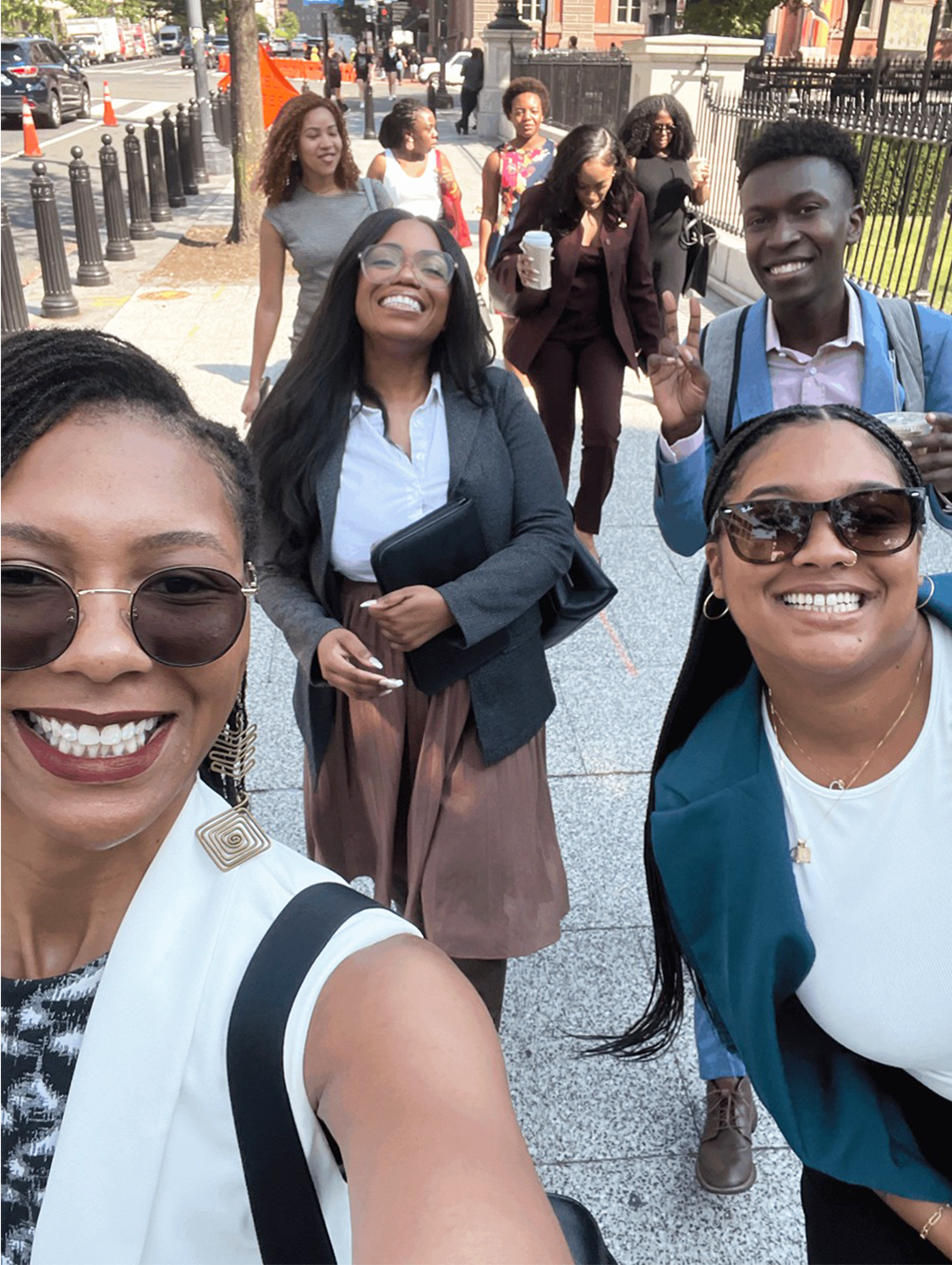In an effort to continue progress toward the arc of social justice and educational equity, it is important for scholars and educators alike to advance and seek out research that centers the desires and visions of the communities they serve. Doing so, allows us to enhance our capacity as educators to engage in high impact evidenced-based praxis and establish community and capacity to move forward.
This year, alongside USC students and my colleague, Dr. Kendrick Davis, I led a small team of scholar-activists, scholar-advocates, and “those situated betwixt and between,” (in the words of one of our scholars) through an immersive experience of scholarly self-discovery. In tandem, this small team of students and I also launched a series of related, embedded community-driven case studies exploring the negative and positive experiences of student-faculty relationships. One of the embedded case studies asks how two-year and four-year students and faculty find solidarity and support for civically engaged scholarship and praxis. It considers how civic engagement (such as, hyper-local community activism, policy advocacy, and community organizing and re/visioning) is translated into research, practice, and policy. Together, the case studies are designed to provide rich qualitative narratives detailing the impact of this moment in political history on students’ emerging scholarly identities in the field of education. Each one, offering a unique set of implications for the field of higher education, as it pertains to retaining and matriculating the civically-engaged scholar.
The Critical Policy Institute (CPI) is an interdisciplinary P-20 research-to-practice collective, inspired by recent viral incidents of student political engagement across university campuses. We launched it this year with the aim of actualizing an organic, but structured community of emerging, tenure-track, and clinical researchers who could support one another in understanding how to conduct and sustain community-driven scholarship. Prior to, during, and after a week-long immersive experience in D.C, students who participated in our inaugural D.C. policy institute were provided iterative opportunities to reflect privately, collectively, and in community with civically engaged educational practitioners, think tanks, and policy stakeholders and one another. Read more about the DC immersive policy experience, here. So much of the institute was about co-constructing an experience that would provide a catalyst for students to envision themselves as self-determined, community-driven scholars with the skills needed to effect large-scale impact to address state, district, and local issues of educational disparity in schools and colleges. In reflections from anonymous surveys, journal entries, and student-led focus groups the following six themes emerged as key experiential points of reflection:
- Positionality and Identity:
- Scholars reflected on their identities, societal perceptions, and challenges based on race, gender, and geographic origin.
- They also focused on the interconnected struggles among Black people globally and the concept of a collective dream were also explored.
- Innervisions of Social Justice:
- Scholars reflected on career trajectories, mentorship over the course of their academic careers, and the importance of authenticity and advocacy rooted in civic and community engagement.
- Reflections focused on personal liberation, freedom, equity, justice, and systemic racism in education and policy-making.
- Career Aspirations:
- Their reflections illustrated a questioning of traditional measures of success in education and advocacy for holistic indicators that valued community-oriented and civic-engaged career paths.
- They envisioned themselves as “partner-scholars” producing evidence-based educational policy recommendations to guide district and campus leaders, as well as, federal and state policy makers.
- Community Engagement and Advocacy:
- Emphasis was placed on integrating community issues into academic research and policy advocacy.
- Discussions were referenced on racial equity, education empowerment, and the role of education in developing self-aware civically and relationally engaged community members.
- STEM Education and Diversity:
- Related reflections highlighted the importance of STEM education, collaboration, and capacity building for equity in technology and policy.
- Addressing racial disparities, promoting diversity in STEM fields, and advocating for underrepresented groups.
- Economic Disparities and Policy Impact:
- These reflections addressed economic gaps, lack of opportunities for Black Americans, and the impact of the tech industry on gentrification in Black and Brown neighborhoods.
- Reflections highlighted issues like reparations, equitable funding for HBCUs, and the need for policies addressing educational inequality.
Moving forward, students are developing two CPI education policy briefs both of which reflect the educational priorities of local civically engaged organizations and collectives across the state of California. In addition, students have continued to seek out additional transformative policy and civic engagement opportunities. Since the D.C.Immersive Policy Institute, some students have been inspired to apply for policy internships and fellowships that were shared between scholars, such as the Emerging Education Policy Scholars program within the Fordham Institute and other similar developmental opportunities. This was directly inspired by students’ exposure to policy influencers spanning the P-20 pipeline who demonstrated a will to hear from community-driven scholars during their time in D.C.
Collectively, the experiences transformed how students think about their scholarly identities and forever transformed our relationships with students as policy-oriented, community-driven, education researchers.








